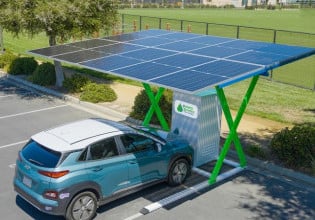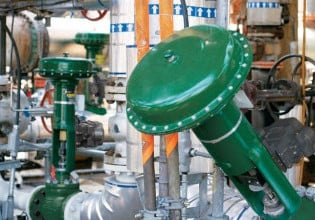Renault-Nissan and Project Better Place Prepare For First Mass Marketed EVs In Israel
The Renault-Nissan Alliance and Project Better Place are claiming that, "for the first time in history", all the conditions necessary for electric vehicles to be successfully mass-marketed will be brought together in a new partnership with the government of Israel. The government would provide tax incentives to customers, Renault would supply the electric vehicles, and Project Better Place would construct and operate an Electric Recharge Grid across the entire country. Electric vehicles will be available for customers in 2011.
Renault states that its vehicles will run on pure electricity for all functions, and that the objective of zero emissions will be achieved while offering driving performances similar to a 1.6 liter gasoline engine. Renault’s electric vehicles will be equipped with lithium-ion batteries, which the comapny states will ensure greater driving range and longevity.
It is claimed that, for the first time in the electric vehicle business, ownership of the car will be separated from the requirement to own a battery. Consumers will buy and own their car and subscribe to energy, including the use of the battery, on a basis of kilometers driven.
The Israeli government recently extended a tax incentive on the purchase of any zero-emissions vehicle until 2019, making them more affordable. According to Renault, when combined with the lower cost of electricity as opposed to fuel-based energy, and the vehicle’s lifetime guarantee, the total cost of ownership for the customer will be significantly lower than that of a fuel-based car over the life cycle of the vehicle.
California-based Project Better Place plans to deploy a massive network of battery charging spots. It is claimed that driving range will no longer be an obstacle, because customers will be able to plug their cars into charging units in any of the 500,000 charging spots in Israel. An on-board computer system will indicate to the driver the remaining power supply and the nearest charging spot. Nissan, through its joint venture with NEC, has created a battery pack that meets the requirements of the electric vehicle and will mass-produce it. Renault is working on development of exchangeable batteries for continuous mobility. The entire framework will go through a series of tests starting this year.
It is claimed that, in Israel, where 90% of car owners drive less than 70 kilometers per day, and all major urban centers are less than 150 kilometers apart, electric vehicles will be the "ideal" means of transportation and could therefore cover most of the population’s transportation needs.






